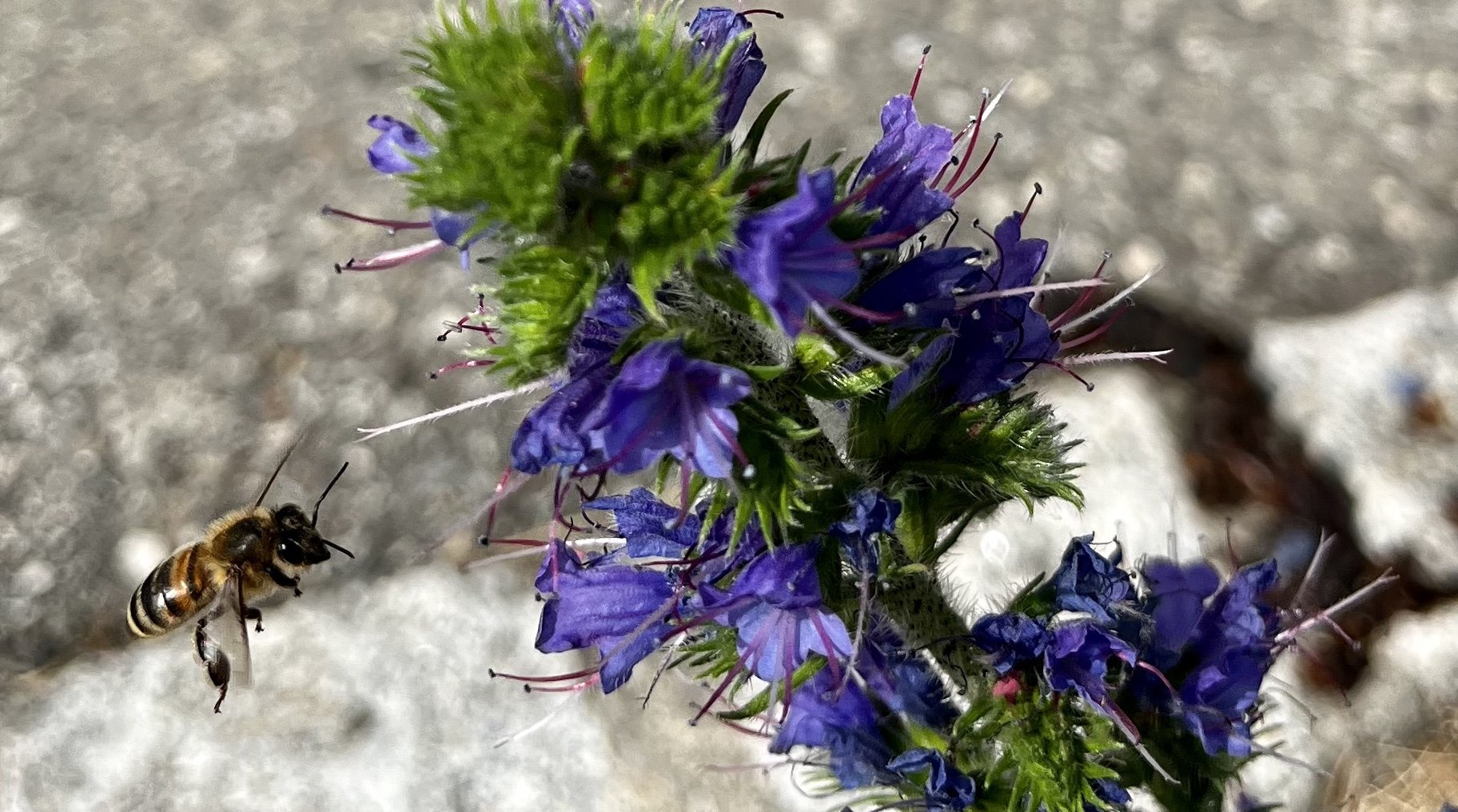About Us
About Apicentre
With your help, we are transforming unused space in the countryside and within towns into dedicated shelters that enable dwindling bee populations to thrive as they wish, according to their nature.
Apicentre’s guiding principle is to provide bee populations the best possible chance for a natural recovery. Its innovative approach bolsters bee populations by repurposing unused land by planting pollinating flowers, setting up "apicentric" hives, and host bees of traceable local origins. This triple approach contributes in creating favourable conditions for the bees to mainly perform their role of pollinators in nature:
Photo: Apicentre
Pollinating flowers planted in the field provide the bees with a source of food that matches the bees’ seasonality.
The apicentric hives focus on the welfare of bees, rather than on the creation of products for commercial use – honey, royal jelly, pollen, beeswax, propolis – to which beekeeping is more traditionally associated.
By liaising with local beekepers and wildlife experts, we ensure that the bees are native to the local in which they are being hosted, and avoid altering the equilibrium within the geographical ecosystem.
Overall, this approach allows bees to follow their natural lifecycle, living in harmony with the environment in full respect of the local biodiversity. We therefore limit human intervention only to those actions that strictly contribute to ensuring the well-being of the bees within each hive. By providing them with a sustainable environment and proper shelter, we can then step back and leave them free to live, thrive and swarm at their pace, according to the rules they have established for themselves since millions of years ago.
Why Bees?
Bees have long been recognised as a keystone species in our ecosystem. When moving from plant to plant, bees carry pollen with them, stimulating the genetic interchange that allows flowers and plants to go to seed. Bees are able to pollinate 71 of the Top-100 crop species that feed 90% of the world. Bees also play a role in the pollination of vegetables, fruits, berries, as well as many herbs and nuts, and inedible produce such as cotton or foodstuff for livestock. Without bee pollination, a large swathe of the plant life that the human food chain relies upon would quickly die off - and shortly after, humans too.
The recent decline in bee populations, and in bee life expectancy, has been recognised by the scientific community as connected to several complex causes, including increased pollution, the industrial use of pesticides in agro-business sector, intensive monoculture agriculture, and general loss of natural habitat. While only part of this puzzle, we believe that helping to support natural habitats geared towards the actual needs of bee populations will contribute to supporting healthy colony growth, and mitigate some of the effects of habitat loss.
Photo: Apicentre
Photo: Apicentre
Tell Me More!
We want to invert the global trend in the downturn of bee colony health by creating new micro-environments, in which we can provide natural conditions favourable to bees, so as to bolster their numbers and biodiversity, and thereby strengthen the overall pollination profile.
We have decided to focus our efforts on the large amount of unused land across Europe. Such land includes small lots that are of limited commercial value, private fields, portions of unused agricultural land, or land that often sits neglected during cumbersome development disputes. While neglected by some, this land represents a huge potential asset for bees. By repurposing this land into wildflower meadows, we can provide natural, pesticide-free habitats supportive of healthy bee colonisation, from which they can swarm off to new locations. In doing so, we also make arrangements with landowners from whom we obtain the land to ensure we are able to swiftly and safely redeploy in the area any hive installed.
Photo: Apicentre




